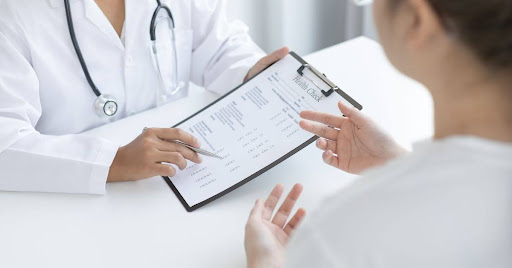The straightforward answer is yes, online sick notes are legitimate and widely accepted across the UK and EU, provided they are issued by a reputable, compliant service. The legitimacy of a medical certificate is not about the medium—digital or paper—but about its source and content. A note from a licensed doctor registered with a national medical authority (like the UK’s General Medical Council or Germany’s Bundesärztekammer) holds the same professional and legal weight, regardless of whether the consultation took place in a physical clinic or via a secure video call. The key to ensuring acceptance is understanding the framework of legitimacy and choosing a service that operates transparently within it.
What Makes an Online Note Legitimate? The European Standard
For a sick note to be considered valid and professional anywhere in Europe, it must contain specific, verifiable information:
- Patient Details: Your full name and date of birth.
- Consultation Date: The exact date the medical assessment occurred.
- Doctor’s Details: The full name, signature, and—most importantly—the professional registration number of the issuing doctor.
- Clear Recommendation: A statement of the doctor’s professional opinion that you are medically unfit for work/study and the recommended period of absence.
- Contact Information: Details of the issuing clinic or platform for verification purposes.

How to Verify the Legitimacy of a Doctor or Service
Trust but verify. If you or your employer have any doubts, you can typically check a doctor’s registration online through the public register of the national medical council in the country where they are licensed. Reputable telehealth platforms will always make their doctors’ credentials readily available. Furthermore, their adherence to GDPR for data protection is another strong indicator of their professionalism.
GDPR and Data Security: A Pillar of Legitimacy
In Europe, data privacy is paramount. Any legitimate telehealth service operating in the EU or UK must be fully compliant with the General Data Protection Regulation (GDPR). This means they are legally bound to protect your sensitive health information with robust encryption and secure data handling practices. This commitment to security is a core component of their legitimacy.
Are These Services Genuinely Fast, Secure, and Legitimate?
The best platforms are built on this trio of values. They are fast, providing same-day access to medical professionals. They are secure, with GDPR compliance at their heart. And they are legitimate, because they are simply a modern platform for registered doctors to provide care and issue the same professional medical certificates they would in person.
Common Reasons and the Application Process
The wide acceptance of online notes is also due to their appropriate use for common, non-emergency conditions. Illnesses like the flu, gastroenteritis, migraines, and acute stress are perfect candidates for a telehealth consultation. The application process is uniform: register securely, consult a doctor via video, and receive your signed PDF certificate—a process that is professional, documented, and transparent.
Online vs. Traditional Visit: A Question of Medical Need
Legitimacy does not mean it’s always the right choice. An online consultation is legitimate for providing a sick note for a common illness. A traditional, in-person visit is the legitimate—and necessary—choice for any serious symptoms, chronic disease management, or situations requiring a physical examination. The legitimacy lies in using the right service for the right medical reason.
Employer Acceptance Across the UK and EU: The 2025 Landscape
The landscape of work has changed. With the rise of remote and hybrid models, employers across the continent have adapted. As of 2025, the vast majority of businesses accept digital sick notes from recognized services. In Germany, for example, the electronic certificate of incapacity for work (eAU) has already digitized the process. While specific company policies can vary (especially for long-term leave), for short-term illness, a digital note is now standard practice.
Navigating Different National Rules (e.g., UK Self-Certification)
It’s important to know your local context. In the UK, you can “self-certify” that you are sick for the first seven days. A doctor’s note (a “fit note”) is only required for absences longer than this. In many other EU countries, a doctor’s note is required from the first or third day of absence. Online services are a legitimate way to obtain this note in any of these scenarios.
What to Do If Your Note Is Questioned
In the rare event an employer questions your note, a legitimate service will support you. They can be contacted to verify the document’s authenticity. Usually, simply pointing out the doctor’s registration number and the platform’s contact details is enough to resolve any queries.
Conclusion: A Confident Yes to Digital Legitimacy
So, are online doctor sick notes accepted everywhere in Europe? For all practical purposes, yes. When issued by a licensed doctor through a secure, GDPR-compliant, and reputable platform, a digital medical certificate is a legitimate and widely recognized document. The skepticism of the past has given way to an understanding that this is simply a modern, efficient evolution of a standard healthcare process. You can use these services with confidence, knowing you are receiving professional medical validation that is fit for the modern European workplace.


